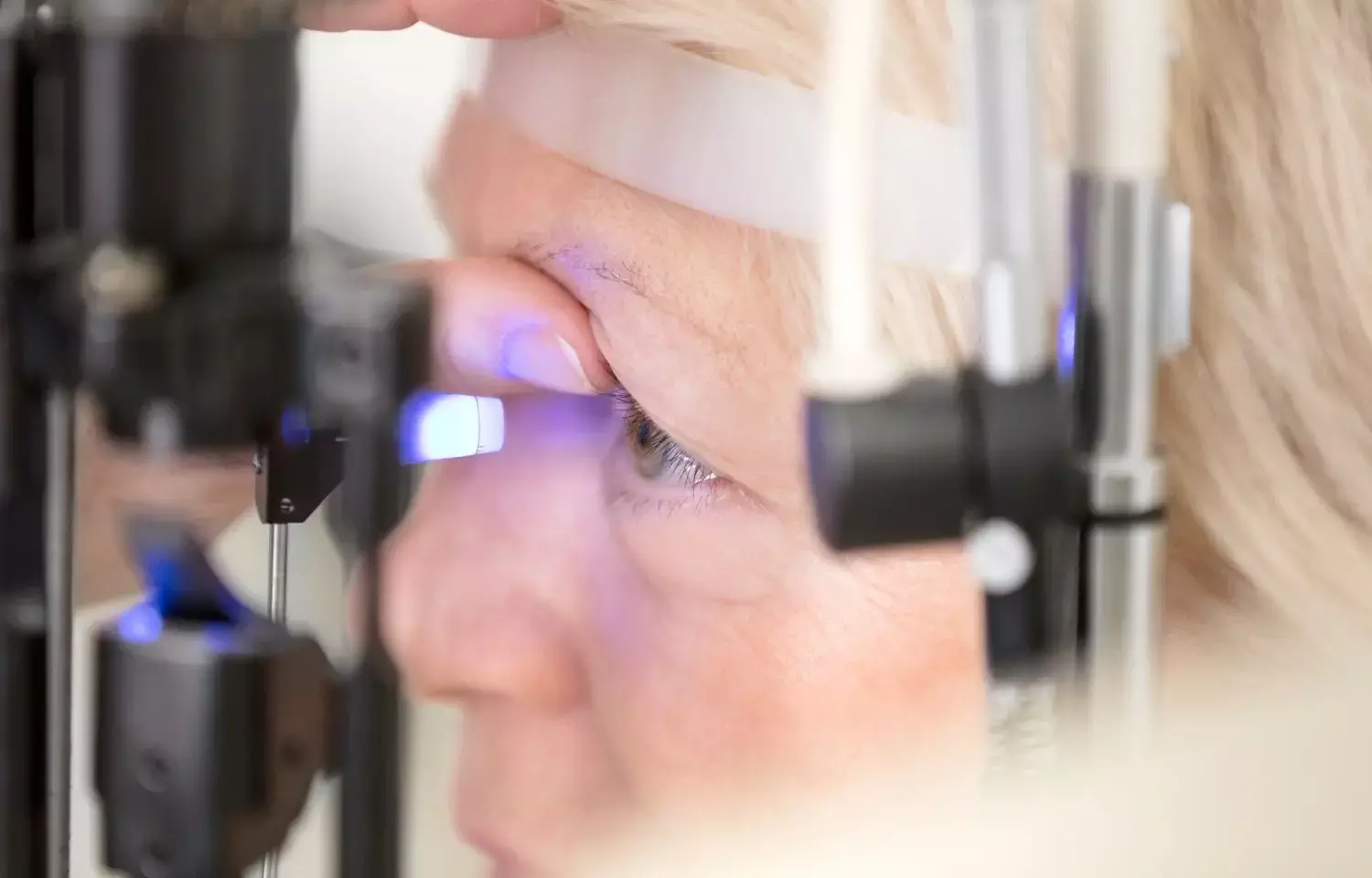- Home
- Medical news & Guidelines
- Anesthesiology
- Cardiology and CTVS
- Critical Care
- Dentistry
- Dermatology
- Diabetes and Endocrinology
- ENT
- Gastroenterology
- Medicine
- Nephrology
- Neurology
- Obstretics-Gynaecology
- Oncology
- Ophthalmology
- Orthopaedics
- Pediatrics-Neonatology
- Psychiatry
- Pulmonology
- Radiology
- Surgery
- Urology
- Laboratory Medicine
- Diet
- Nursing
- Paramedical
- Physiotherapy
- Health news
- Fact Check
- Bone Health Fact Check
- Brain Health Fact Check
- Cancer Related Fact Check
- Child Care Fact Check
- Dental and oral health fact check
- Diabetes and metabolic health fact check
- Diet and Nutrition Fact Check
- Eye and ENT Care Fact Check
- Fitness fact check
- Gut health fact check
- Heart health fact check
- Kidney health fact check
- Medical education fact check
- Men's health fact check
- Respiratory fact check
- Skin and hair care fact check
- Vaccine and Immunization fact check
- Women's health fact check
- AYUSH
- State News
- Andaman and Nicobar Islands
- Andhra Pradesh
- Arunachal Pradesh
- Assam
- Bihar
- Chandigarh
- Chattisgarh
- Dadra and Nagar Haveli
- Daman and Diu
- Delhi
- Goa
- Gujarat
- Haryana
- Himachal Pradesh
- Jammu & Kashmir
- Jharkhand
- Karnataka
- Kerala
- Ladakh
- Lakshadweep
- Madhya Pradesh
- Maharashtra
- Manipur
- Meghalaya
- Mizoram
- Nagaland
- Odisha
- Puducherry
- Punjab
- Rajasthan
- Sikkim
- Tamil Nadu
- Telangana
- Tripura
- Uttar Pradesh
- Uttrakhand
- West Bengal
- Medical Education
- Industry
Alcohol and Smoking Increase Risk of development of Glaucoma: BMJ

A recent retrospective study published in the BMJ Open found the potential connections between alcohol consumption, smoking, and the development of glaucoma in individuals suspected to have the condition. The study followed 610 patients with glaucoma suspect eyes and normal visual fields over an average of nine years, provides valuable insights into lifestyle-related factors influencing glaucomatous vision loss.
The research, part of the Diagnostic Innovations in Glaucoma Study (DIGS) and the African Descent and Glaucoma Evaluation Study (ADAGES), found that among the 825 eyes studied, 28.5% eventually displayed a consistent pattern of abnormal visual field tests – a key indicator of glaucoma development.
The findings revealed a significant association between alcohol consumption and an increased risk of developing glaucoma. Those who consumed alcohol were found to have a 57% higher risk, emphasizing the potential link between alcohol and the progression of the disease.
Interestingly, gender and ethnicity played a role in this association. For men, the risk of developing glaucoma was even higher among alcohol drinkers, with a 92% increased risk compared to non-drinkers. Similarly, individuals of African descent who consumed alcohol were 79% more likely to develop glaucoma compared to non-drinkers.
Another key finding pertained to smoking and its impact on glaucoma risk. Age, it was discovered, acted as a modifier in this relationship. Older patients, aged over 61, who smoked had a 73% higher risk of developing glaucoma compared to non-smokers, even after adjusting for confounding factors.
These findings underline the importance of considering lifestyle-related factors when evaluating glaucoma risk and progression. Glaucoma, often called the "silent thief of sight," can lead to irreversible vision loss if not managed effectively. Understanding the role of alcohol and smoking in glaucoma development, as indicated by this study, may lead to more targeted prevention and management strategies.
This study represents a significant step toward understanding the interplay between lifestyle choices and eye health, potentially helping patients and healthcare professionals in the early identification and management of glaucoma.
Source:
Mahmoudinezhad, G., Nishida, T., Weinreb, R. N., Baxter, S. L., Chang, A. C., Nikkhoy, N., Walker, E., Liebmann, J. M., Girkin, C. A., & Moghimi, S. (2023). Associations of smoking and alcohol consumption with the development of open angle glaucoma: a retrospective cohort study. In BMJ Open (Vol. 13, Issue 10, p. e072163). BMJ. https://doi.org/10.1136/bmjopen-2023-072163
Neuroscience Masters graduate
Jacinthlyn Sylvia, a Neuroscience Master's graduate from Chennai has worked extensively in deciphering the neurobiology of cognition and motor control in aging. She also has spread-out exposure to Neurosurgery from her Bachelor’s. She is currently involved in active Neuro-Oncology research. She is an upcoming neuroscientist with a fiery passion for writing. Her news cover at Medical Dialogues feature recent discoveries and updates from the healthcare and biomedical research fields. She can be reached at editorial@medicaldialogues.in
Dr Kamal Kant Kohli-MBBS, DTCD- a chest specialist with more than 30 years of practice and a flair for writing clinical articles, Dr Kamal Kant Kohli joined Medical Dialogues as a Chief Editor of Medical News. Besides writing articles, as an editor, he proofreads and verifies all the medical content published on Medical Dialogues including those coming from journals, studies,medical conferences,guidelines etc. Email: drkohli@medicaldialogues.in. Contact no. 011-43720751


